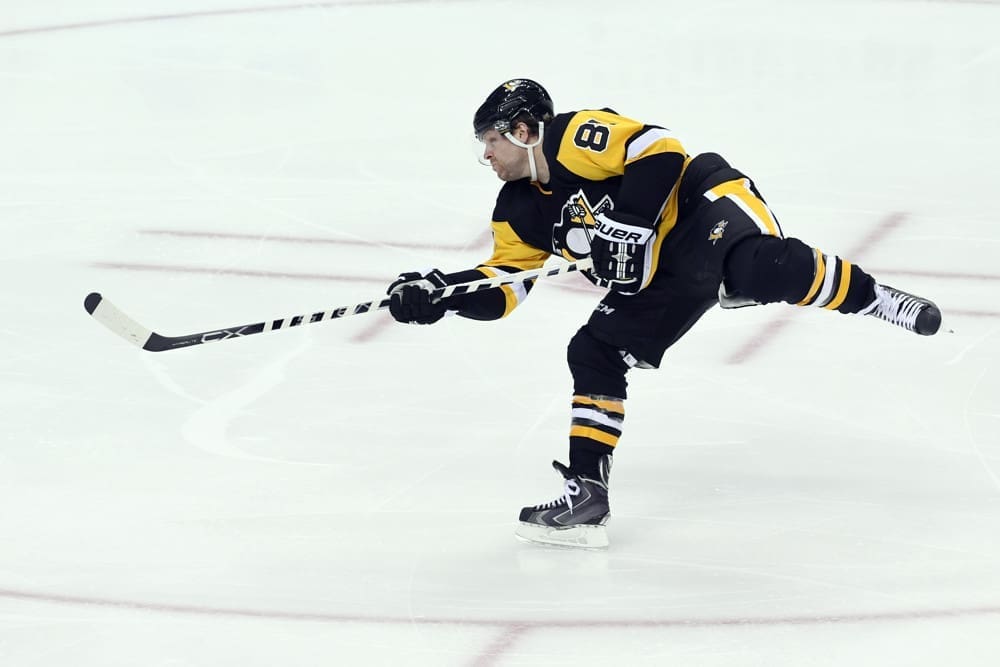Penguins
Gajtka: Penguins Felt Kessel Put Streak Ahead Of Team, But Why Did He?
A player who thinks he’s being selfless by enduring pain can easily cross the border into selfishness.

More than a dozen reporters waited in the press room on Wednesday at UPMC Lemieux Sports Complex. We already knew Yevgeni Malkin — Russian spelling for a Russian announcement — had suffered a knee injury during the Penguins’ playoff run, but what about the clearly compromised Phil Kessel?
Was he fighting a wrist problem? How about a sports hernia? Maybe a broken rib or two? Since Kessel didn’t make himself available to reporters, we had to lean on management for the big reveal.
Instead, we were disappointed.
“I’d rather not get into the list of injuries guys had,” Mike Sullivan said in response to a query on Kessel’s health. “It was nothing significant. I can tell you that.”
Jim Rutherford wasn’t quite as blunt, but he went with the circumspect approach, too.
“(Kessel) actually dealt with injuries all year,” Rutherford said. “To his credit, he played through those during the regular season. But his playoff (wasn’t) what it has been the last couple of years. I know that some of those things he dealt with caught up to him.”
We can debate why the Penguins decided to keep up the shroud of secrecy after the end of the season — Derick Brassard and Patric Hörnqvist stonewalled, too — but the Kessel talk was striking in what wasn’t there.
There’s the possibility Sullivan and Rutherford were bluffing, but the more likely possibility is that they were telling the truth. There was no broken bone or torn ligament, just a man beaten down by multiple ailments over the course of seven months.
If that is indeed the case, the onus goes on the player for compromising both himself and the team.
Selfless or Selfish?
As I reported before Saturday’s Game 5, the Penguins’ coaching staff was conflicted during the series against the Capitals, because they didn’t know if dressing Kessel in his diminished state would be better than rolling a rookie like Daniel Sprong out there for his NHL playoff debut.
I’m not sure there’s a right answer there, but I’m sure of one thing: Kessel should learn from this experience and not let it happen again.
You probably know that Kessel is one of the NHL’s iron men. The man hasn’t missed a game in this decade. That’s remarkable and worthy of praise, but a streak like that should be something that just happens, not something a player forces.
I’ve learned recently that some decision-makers in the Penguins organization believe Kessel is so determined to keep the consecutive-games streak alive that he plays through injuries that he shouldn’t. And for this particular franchise at this specific time, the playoffs are everything. It does the team no good for one of its top producers to grind through regular-season games.
If I were to have a chat with Kessel, I’d say something like this …
Phil, I know your toughness and commitment was repeatedly questioned while you were in Toronto. But you’re not in Toronto anymore. You’re a two-time Stanley Cup champion in Pittsburgh and you don’t have to prove your strength to anyone here. Let your body heal so you can give those your teammates your best.
Getting Through to Phil
The thing is, I’m almost certain this conversation has been had with Kessel, maybe even multiple times.
Sullivan admittedly loves to talk with his players, especially his star players, to make sure they’re on the same page. That’s part of the reason Sidney Crosby, Malkin and Kessel bought into Sullivan’s leadership credibility in the first place more than two years ago.
Sometimes, though, a player has to arrive at a conclusion on his own. Kessel’s marked underperformance in the playoffs, and the fact that Sullivan cut his even-strength ice time down to fourth-line levels by the end of the second round, should provide enough motivation to learn the lesson.
In some ways, I blame the hockey culture that dictates players do whatever it takes to get on the ice at playoff time. Honestly, it’s irresponsible in the context that these are human beings with lives outside the game. Professional hockey is a job, not a mission from God.
If you just think I’m being ‘soft,’ then here’s another angle for you: A team has a better chance to win when its players are honest self-evaluators about their ability to perform at their expected levels. A player who thinks he’s being selfless by enduring pain in the name of the team can easily cross the border into selfishness.
Judging by the Penguins’ comments — public and private — and Kessel’s lackluster spring, I’d say that line was crossed on this occasion. It’s understandable, but also not acceptable.












